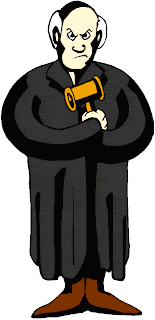The novel “Frankenstein” by Mary Shelly raises an important question: What does it mean to be human? Scientifically speaking, it means to have 23 double-stranded chromosomes per body cell, but humanity is much more than just that. I think that a better definition for human involves having logic, reasoning, and some sense of morality. Based on this definition, who, now, is the most human of the characters, in the novel? The monster no doubt has logic and reasoning, as he was able to effectively make sense of the world, which was completely new to him, on his own. He also appeared to have a fairly well developed moral code. Although he committed immoral acts, such as the murders of William, Henry, and Elizabeth, he expressed remorse and guilt on the subject, and was clearly aware that what he had don was wrong. Victor, on the other and, also possessed logic and reason, being a scientist. His morals, however, were lacking in comparison to the monster’s. He was unaware that his treatment of the monster was wrong. He constantly judged others, and treated them unfairly, without the slightest clue that it was immoral. Though physically speaking we cannot discern whether the monster was truly “human”, the monster is more human than Frankenstein due to the previously stated reasons.
I think that Shelly believe morality to be both the best and most important qualities of humanity. She gives the monster a stronger moral compass than Victor, and then sets it up so that we sympathize with the monster. We feel bad for the monster because he was constantly treated unfairly, despite not doing anything wrong. Victor, on the other hand, treats the monster very poorly, which is why the reader tends to to sympathize with him, and which is why morality is such an important quality in humans.
I believe that humans are fundamentally shallow and judgmental. Victor in particular constantly judges others, and bases his oppinion of them of appearance and first impressions. He, however, is not the lone example; Justine’s judges also unfairly judged her, as well as Victor’s mother, and the witnesses of Henry’s murder. The judging of others is a consistently repeated pattern in the novel, humans, according to Shelly, are therefore fundamentally shallow creatures.























